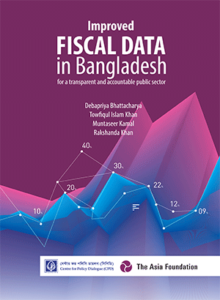 Fiscal transparency and accountability can help attain a number of macroeconomic objectives. It is essential for fostering better macroeconomic stability, improving credit ratings, lowering public debt and deficits, decreasing corruption levels and catalysing high levels of economic growth. These are essential prerequisites for establishing good governance. Indeed, transparency and dissemination of information are critical for different social groups to participate in the budgetary process. In fine, fiscal transparency, i.e., full disclosure and timely reporting of fiscal data, is key to maintaining budgetary integrity, effective financial monitoring, promoting participatory debates around fiscal policies, and endorsing accountability in macroeconomic management.
Fiscal transparency and accountability can help attain a number of macroeconomic objectives. It is essential for fostering better macroeconomic stability, improving credit ratings, lowering public debt and deficits, decreasing corruption levels and catalysing high levels of economic growth. These are essential prerequisites for establishing good governance. Indeed, transparency and dissemination of information are critical for different social groups to participate in the budgetary process. In fine, fiscal transparency, i.e., full disclosure and timely reporting of fiscal data, is key to maintaining budgetary integrity, effective financial monitoring, promoting participatory debates around fiscal policies, and endorsing accountability in macroeconomic management.
Bangladesh’s fiscal data ecosystem is constrained by a number of challenges, making the performance of key indicators difficult to measure and impeding fiscal transparency. The divergence between fiscal data provided by the key data suppliers makes the situation more difficult to gauge. The consistency of accounting practices has been raised as an issue in terms of fiscal data transparency. This issue is evinced in the case of both revenue and expenditure sides of the fiscal framework. The key players have consistently struggled in data reporting, which poses a serious challenge by increasing time lag in fiscal data and reporting frequency. The absence of detailed and disaggregated fiscal data in the public domain could result in a waste of public money and provides opportunities for corruption.
Despite the challenges, it can be argued that the fiscal data ecosystem of Bangladesh has undoubtedly made notable progress over the last decade or so. However, its prospective evolution is encumbered by several long-standing and emerging issues. On the one hand, these present substantial structural challenges for the structures, processes and techniques to deal with. On the other, these also point towards possible institutional and policy pathways to improve and enhance the existing fiscal data ecosystem. The forward movement needs to be designed and delivered in terms of the ecosystem’s availability, accessibility, agility, and accuracy.
Authors: Debapriya Bhattacharya, Towfiqul Islam Khan, Muntaseer Kamal and Rakshanda Khan
Publication Period: February 2022

